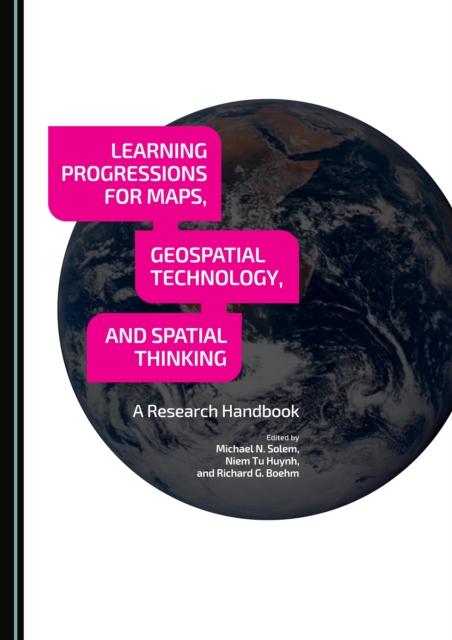
None Learning Progressions for Maps, Geospatial Technology, and Spatial Thinking : A Research Handbook PDF
Edited by Niem Tu Huynh, Michael N. Solem, Richard Boehm
Description
As an approach to educational research, learning progressions offer considerable potential for investigating how children develop an understanding of geographic concepts and practices across grade bands and in relation to national geography standards.
With funding support from the US National Science Foundation, this book was created as a resource for researching learning progressions for maps, geospatial technology and spatial thinking. Featuring contributions from experts in geography, math and science education, the book's chapters offer advice, examples and guidance on the following topics:
¢ Definitions of learning progressions with examples from geography, math and science education;
¢ Discussion of relevant research on spatial cognition, map learning and GIS education;
¢ Approaches to constructing samples and assessment items for quantitative studies;
¢ Demonstration of how to perform validity tests of research instruments;
¢ Demonstration and practice of qualitative methods, including clinical interviews;
¢ How to interpret quantitative and qualitative data;
¢ Common errors, pitfalls and obstacles in learning progressions research;
¢ Strategies for working with teachers and students in K-12 classrooms.
The interdisciplinary nature of the book will appeal to graduate students, higher education faculty and school teachers in several subject areas.
Information
-
Download - Immediately Available
- Format:PDF
- Pages:112 pages
- Publisher:Cambridge Scholars Publishing
- Publication Date:17/05/2022
- Category:
- ISBN:9781527585317
Information
-
Download - Immediately Available
- Format:PDF
- Pages:112 pages
- Publisher:Cambridge Scholars Publishing
- Publication Date:17/05/2022
- Category:
- ISBN:9781527585317






